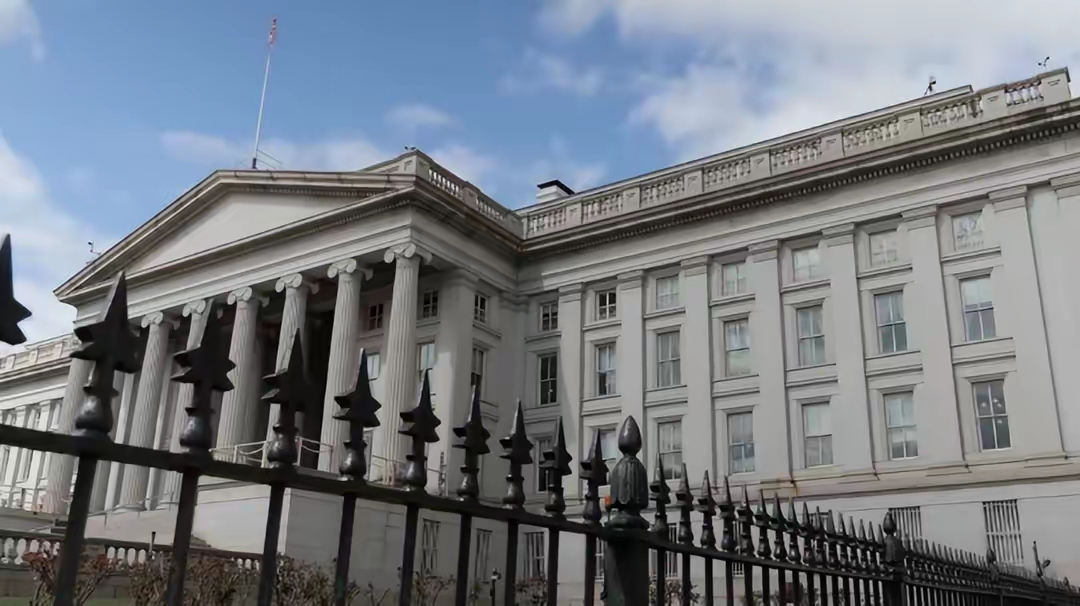
In the current complex and ever-changing global economic landscape, a series of remarkable events are happening, including the possibility of the Federal Reserve cutting interest rates by the end of 2024 and Japan leading the way in selling US bonds, which have sparked widespread attention and deep concerns. Does this series of developments foreshadow the imminent collapse of the US financial market? Let's delve into the reasons and potential impacts behind it.
Firstly, the Federal Reserve's decision to cut interest rates did not come out of thin air. Usually, interest rate cuts are aimed at stimulating economic growth, reducing borrowing costs, encouraging corporate investment, and consumer consumption. However, the possible interest rate cut this time may imply deeper problems within the US economy. Factors such as weak economic growth, unstable job market, and declining consumer confidence may force the Federal Reserve to take this measure in an attempt to salvage the situation.
From the perspective of economic data, the recent manufacturing PMI in the United States has remained sluggish, indicating a weak trend in the manufacturing industry. At the same time, there are signs of cooling in the real estate market, with a decrease in housing sales and new housing construction, which has a certain drag on overall economic growth. In terms of consumption, although the unemployment rate is relatively low, slow wage growth has resulted in ineffective improvement of consumers' purchasing power and limited growth in consumer spending. These signs combined provide a realistic basis for the Federal Reserve's decision to cut interest rates.
The act of Japan leading the way in selling US Treasury bonds further exacerbated market anxiety. As one of the most important assets in the world, US Treasury bonds have always been trusted by investors for their stability and safety. However, as one of the important creditors of the United States, Japan's decision to sell off US bonds undoubtedly sends a negative signal to the market. This may reflect Japan's concerns about the prospects of the US economy and uncertainty about the future value of US bonds.
Japan's move may trigger other countries to follow suit and sell, leading to a decline in US bond prices and an increase in yields. This will increase the financing costs for the US government and further burden the fiscal burden. Meanwhile, a massive sell-off of US Treasury bonds could lead to turbulence in global financial markets, triggering large-scale capital flows and exchange rate fluctuations.
For the US financial market, this series of events undoubtedly adds insult to injury. The stock market may experience significant fluctuations due to uncertainty in the economic outlook and adjustments in interest rate policies, which could undermine investor confidence. The bond market will also face enormous pressure, as an increase in yields may lead to a sharp drop in bond prices, causing significant losses to bond investors.
In addition, financial institutions in the United States may also be impacted. The asset quality of banks may deteriorate due to the increase in loan default rates, and the risks in the financial derivatives market may further amplify. If not effectively addressed, this may trigger systemic financial risks and cause serious damage to the entire financial system.
However, we cannot simply assume that the US financial market will inevitably collapse. The United States has a strong economic foundation and a sound financial regulatory system, with a certain ability to respond to crises. The government and central bank may take a series of policy measures to stabilize the market, such as increasing fiscal spending, implementing loose monetary policies, and strengthening financial regulation.
However, regardless, the current situation requires us to remain highly vigilant. The close connection of the global economy makes it possible for financial turmoil in the United States to quickly spread to other countries and regions. Countries should closely monitor the dynamics of the US economy and financial markets, and take risk prevention and response measures in advance to reduce potential impacts and losses.
In short, the possible end of year interest rate cuts by the Federal Reserve and Japan's leading sell-off of US bonds have indeed brought many uncertainties and potential risks to the US financial market. Although it cannot be asserted that this will inevitably lead to a collapse, this series of events is undoubtedly an important warning signal on the global economic stage, requiring us to closely monitor and respond with caution and rationality.

The US Democratic Party recently released a new batch of photos related to Jeffrey Epstein, including images of Donald Trump, once again pushing the controversial political figure into the spotlight.
The US Democratic Party recently released a new batch of ph…
Recently, according to the Rio Times, after maintaining the…
A business war in AI, fueled by ideological differences and…
As the year draws to a close, the Federal Reserve is mired …
The Thai military plans to blockade the Gulf of Thailand to…
Ukrainian President Volodymyr Zelensky said that Ukraine ha…